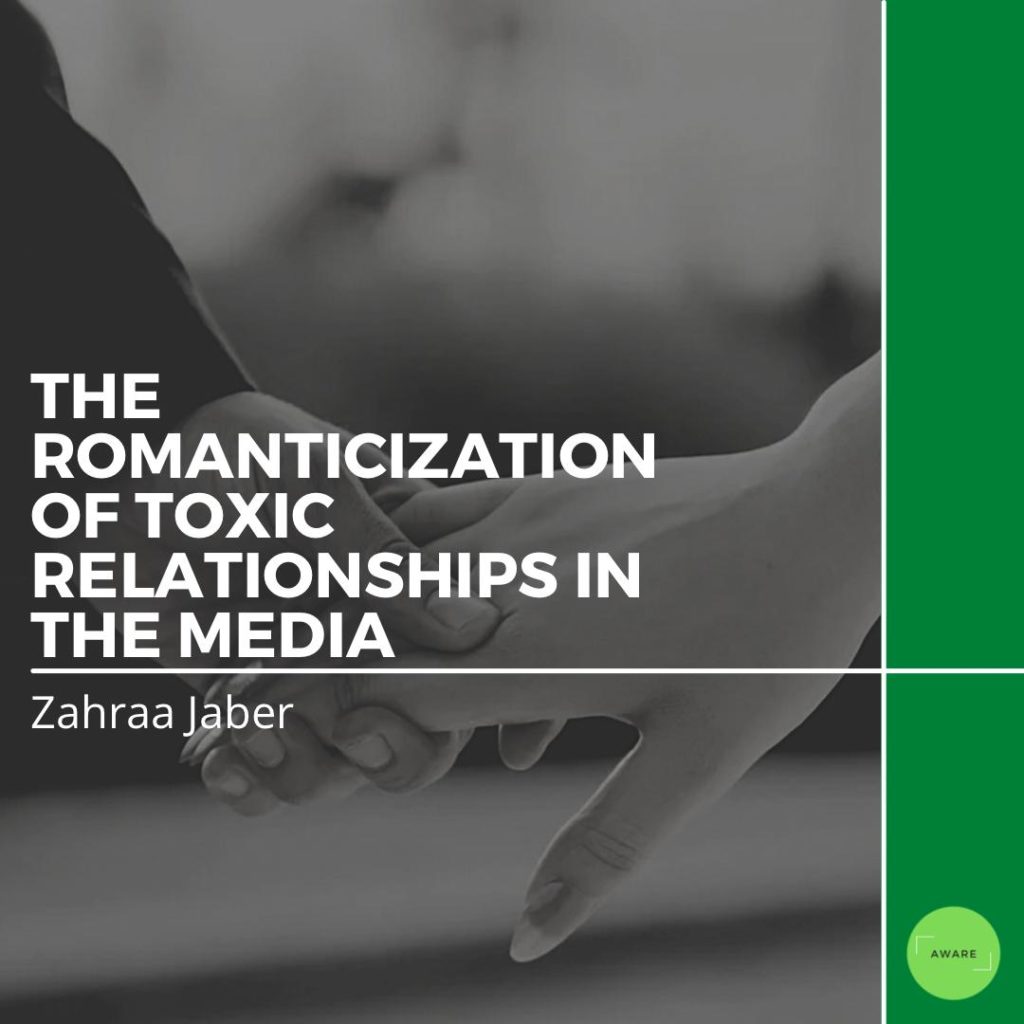Many of us have had instances where we were scrolling through social media and saw a controversial couple such as Harley Quinn and The Joker posted with a corny love caption accompanying the picture. Most of us have been so desensitized to it that we do not really see anything wrong with it anymore.
Romanticization of Toxic Relationships
The glorification of abuse in romantic and platonic relationships has become ingrained into the fabric of film and television, to the point where viewers idolize toxic relationships. What we see in pop culture is often unhealthy. As such, it is extremely important to be aware of and de-normalize this pattern of behavior. Think back to relationships like Christian Grey and Anastasia Steele from “Fifty Shades of Grey” or the depiction of Harley Quinn and The Joker in “Suicide Squad”. These relationships, or those that are similar, are depicted to young, impressionable girls and boys, and this can be harmful.
Toxicity, Abuse & Violence VS. The Media
According to Domestic Violence Services, “nearly 1.5 million high school students nationwide experience physical abuse from a dating partner in a single year. 1 in 3 girls in the US is a victim of physical, emotional, or verbal abuse from a dating partner, a figure that far exceeds rates of other types of youth violence.” Toxic abuse and violence presented to us through the media is something that should not be romanticized but, instead, something to learn from. “Among female students between the ages of 15-20 who reported at least one violent act during a dating relationship, 24% reported experiencing extremely violent incidents such as rape or the use of weapons against them.” More than enough high school students, especially female students in relationships, experience a toxic and abusive relationship as is being broadcasted in the media through TV shows. TV shows are meant to teach the youth about this and let them know that they are not alone and can seek help, but the message with the younger audience is not getting through. It is getting misconstrued in ways where it is romanticized in almost every kind of media, labeling it as this “hot” or “bad boy” complicated trope when it is just toxic.
Toxic Relationships We All Romanticize
Here are some of the on-screen couples we have been supporting and romanticizing over the past couple of years –
- Bella and Edward, Twilight: As if a relationship between a 100-year-old vampire and a 17-year-old high school student was not creepy enough, Edward would sneak into her room to watch her sleep. Then, there are the crippling anxiety attacks and attempted suicides that Bella goes through when she cannot be with Edward. Ultimately, she gives up everything for him and agrees to become a vampire so they can be together forever. This is the exact opposite of a healthy relationship.
- Anastasia and Christian, Fifty Shades of Grey: Not only does the franchise romanticize manipulation and abuse, but it also gets everything about BDSM wrong. Sex lives may have gotten a bit spicier with a hint of kink inspired by the films and books, but there is also a real danger in engaging in these acts without fully knowing the rules.
- Harley Quinn and The Joker, Suicide Squad: Harley Quinn and The Joker make up one of the most violent, disturbing relationships in pop culture. He is highly unstable, manipulative, and both physically and emotionally abusive of Harley. He belittles her, and she takes his abuse while suppressing her true feelings. Yes, Harley is a criminal and a psychopath, but she was a highly intelligent, well-regarded doctor before he came into the picture. Fans get caught up in their playful banter and colorful costumes, but it is time to recognize that this couple should not be romanticized.
At what point are Hollywood producers and authors going to draw the line on what a villain is? When will movies and books stop portraying objectively horrible behavior as acceptable because someone is traditionally attractive? When are they going to stop feeding the narrative to young people that if someone hurts you, it secretly means that they like you? That they deserve forgiveness because they have a “dark past”? That if they restrict you, or outright say they own you, you should feel flattered by their possessiveness?
